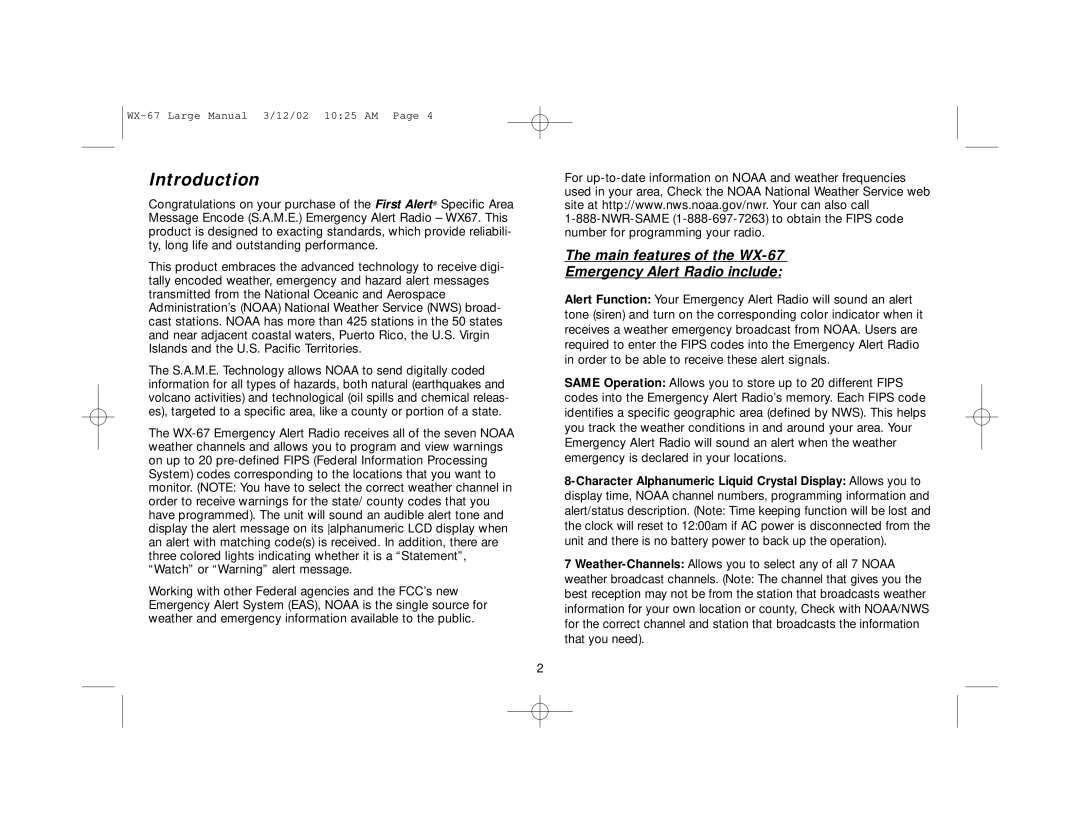
Introduction
Congratulations on your purchase of the First Alert® Specific Area Message Encode (S.A.M.E.) Emergency Alert Radio – WX67. This product is designed to exacting standards, which provide reliabili- ty, long life and outstanding performance.
This product embraces the advanced technology to receive digi- tally encoded weather, emergency and hazard alert messages transmitted from the National Oceanic and Aerospace Administration’s (NOAA) National Weather Service (NWS) broad- cast stations. NOAA has more than 425 stations in the 50 states and near adjacent coastal waters, Puerto Rico, the U.S. Virgin Islands and the U.S. Pacific Territories.
The S.A.M.E. Technology allows NOAA to send digitally coded information for all types of hazards, both natural (earthquakes and volcano activities) and technological (oil spills and chemical releas- es), targeted to a specific area, like a county or portion of a state.
The
Working with other Federal agencies and the FCC’s new Emergency Alert System (EAS), NOAA is the single source for weather and emergency information available to the public.
For
The main features of the WX-67
Emergency Alert Radio include:
Alert Function: Your Emergency Alert Radio will sound an alert tone (siren) and turn on the corresponding color indicator when it receives a weather emergency broadcast from NOAA. Users are required to enter the FIPS codes into the Emergency Alert Radio in order to be able to receive these alert signals.
SAME Operation: Allows you to store up to 20 different FIPS codes into the Emergency Alert Radio’s memory. Each FIPS code identifies a specific geographic area (defined by NWS). This helps you track the weather conditions in and around your area. Your Emergency Alert Radio will sound an alert when the weather emergency is declared in your locations.
7
weather broadcast channels. (Note: The channel that gives you the best reception may not be from the station that broadcasts weather information for your own location or county, Check with NOAA/NWS for the correct channel and station that broadcasts the information that you need).
2
